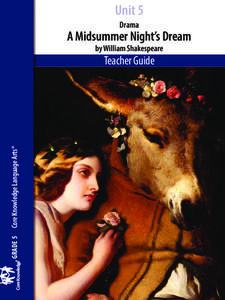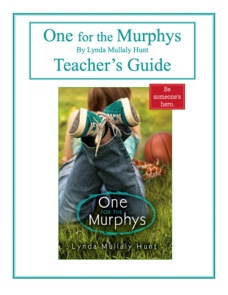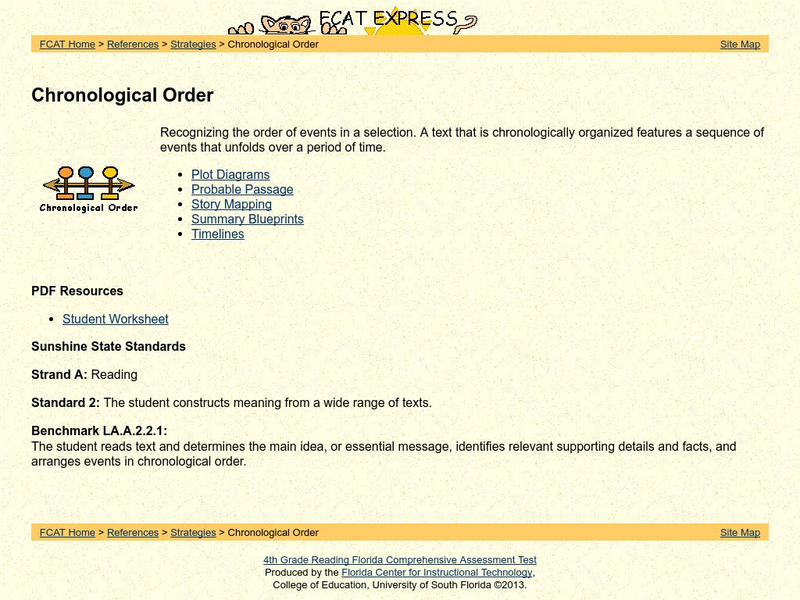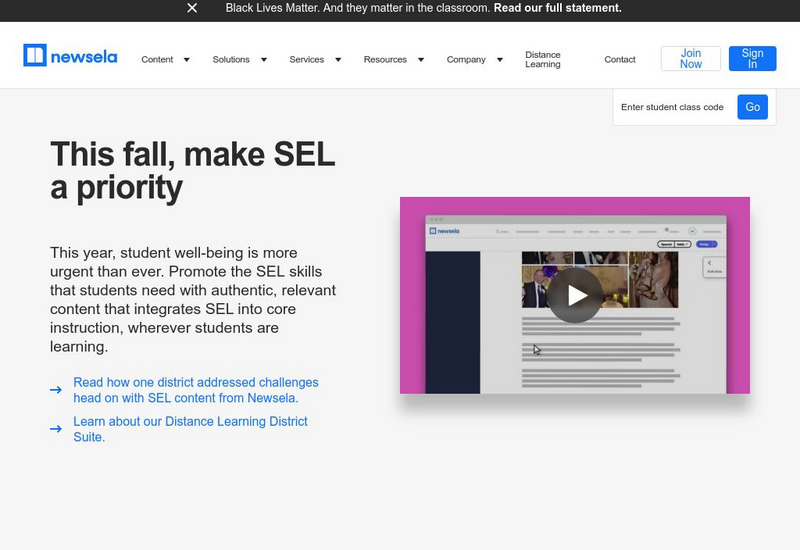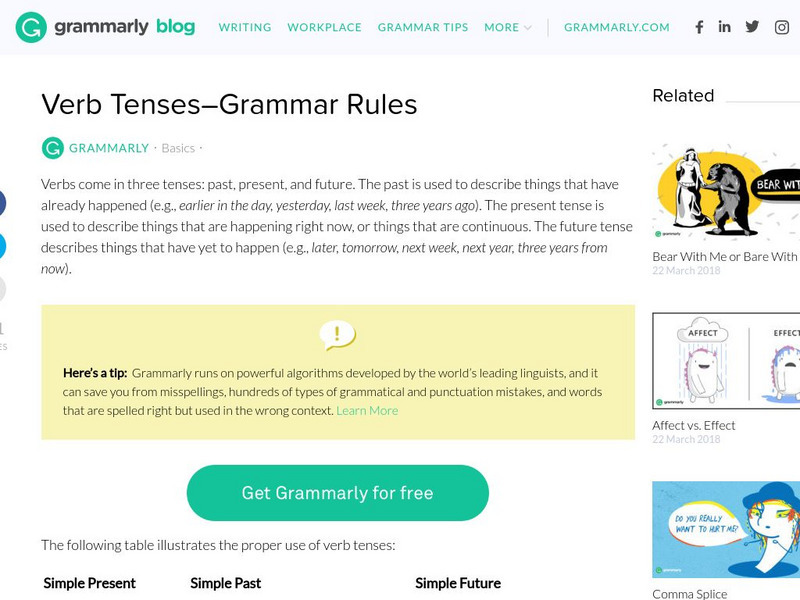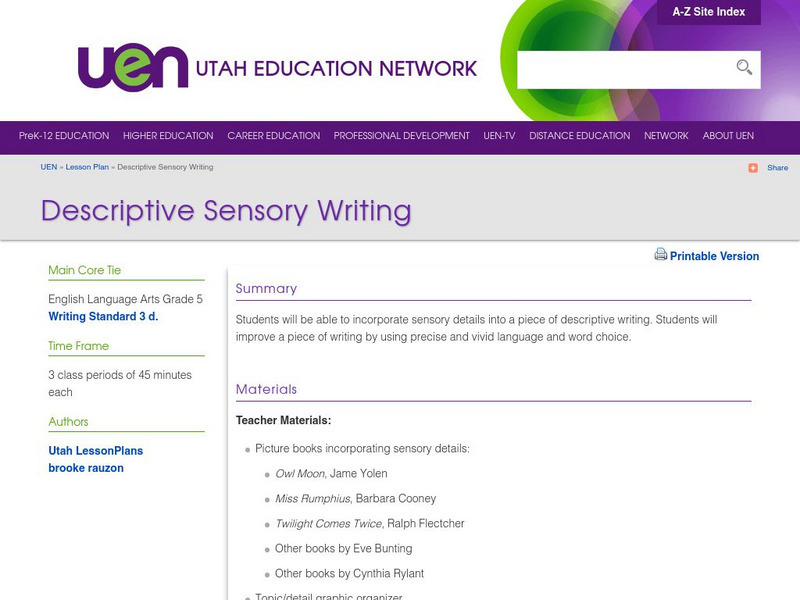Core Knowledge Foundation
Unit 7: Poetry
Over the course of a 12-lesson language arts unit, young scholars analyze a variety of poems taking a close look at figurative language and tone. They learn to compare and contrast, improve comprehension, and identify settings. To...
Core Knowledge Foundation
Unit 5: A Midsummer Night’s Dream
Fifth graders analyze William Shakespeare's A Midsummer Night's Dream, paying close attention to character development, plot, and dialogue. With daily reading and thoughtful discussion, scholars take pen to paper to respond to journal...
Core Knowledge Foundation
Unit 2: Early American Civilizations
Fifth graders explore early American civilizations in a four-week ELA unit. Every lesson offers an opportunity to read and discuss a selected passage followed by word work that covers vocabulary, grammar, and morphology. Learners write...
Core Knowledge Foundation
Unit 1: Contemporary Fiction - They Call Me Güero: A Border Kid’s Poems by David Bowles
They Call Me Güero: A Border Kid's Poems by David Bowles is the focus of a five-week language arts unit unit. Fifth graders listen to various poems and participate in thoughtful discussions, examining vocabulary and learning new words in...
EngageNY
Final Performance Task: Presenting Graphic Novelettes
Let's get graphic. Serving as the final performance task of the unit, scholars complete their graphic novelettes and design covers based on their sketches. Finally, they present their hard work to classmates.
EngageNY
Storyboard Revision: Managing the Sequence of Events and Using Sensory Details
Mastering techniques from the resource, pupils give life to their writing, revising their storyboards to include sensory details and transitions. To finish, they participate in a peer critique process and use the feedback to further...
EngageNY
Our Group Readers Theater: Revision, Conclusion, and First Rehearsal
Revision is the key to great writing. Individuals revise their readers theater scripts and write a group conclusion. Scholars then perform their scripts for another group and receive feedback.
EngageNY
End of Unit Assessment: Individual Sections of Readers Theater Script
Let's play! Pupils create titles for their readers theater scripts and act them out in a fun game of charades. Next, as part of their end of unit assessment, they write final copies of their individual scripts.
EngageNY
Drafting Individual Readers Theater Scripts for a Specific Scene: Rephrasing, Narrator Introduction, and Identifying Characters
Read, revise, refine! Scholars refine their readers theater scripts by rephrasing some of the lines. Next, they write drafts of their narrator introductions and share their work with peers to give and receive feedback.
National Woman's History Museum
Seneca Falls and Suffrage: Teaching Women's History with Comics
As part of the study of women's history, young scholars examine Chester Comix's strips about the Seneca Falls Convention and four 19th century leaders in the struggle for equal rights. After researching other elements of the Suffrage...
Penguin Books
One for the Murphys by Lynda Mullaly Hunt - Teacher's Guide
Children in foster care face a lot of uncertainty in their lives. A guide for the novel One for the Murphys introduces a main character, Carley, who is thrust into the foster care system. Chapter-by-chapter questions cover key...
Louisiana Department of Education
The Lion, The Witch, and The Wardrobe
Compare and contrast popular works of fantasy literature with an in-depth reading comprehension unit. Language arts learners study the theme of good versus evil, fantastical characters and symbols, and the value of a visual...
Learning to Give
Why Volunteer?
Inspire scholars to volunteer their time to make a positive change in their community. With help from research, a public speaker, and reflection, learners define and asses what it takes to be a volunteer in a business, non-profit,...
ReadWriteThink
Dear Librarian: Writing a Persuasive Letter
Everyone deserves to read a great book! Here, pupils write a persuasive letter to the school's librarian detailing their favorite story and why it should be found on the shelves. Class members' persuasive reading passages are shared with...
K12 Reader
Rules of the Game
Prompt your young writers to explain the rules of a game and help them develop their skills of adding appropriate detail and explanation to their writing.
Curated OER
The Personal Narrative - Part One
Read to write! The class lists sensory details based on the plot of a story they have recently read. They create a drawing of a bracelet and use the bracelet's jewels or charms to list sensory details included in the story. They then use...
Alabama Learning Exchange
Newscast on the Battles of the Ironclad Ships
Fifth graders create multi-media newscasts based on their knowledge of Civil War battles of the ironclad ships.
Education Place
Houghton Mifflin: Eduplace: Wacky Web Tales: The Weather Station
This fill-in-the-blank Wacky Web Tale includes a story about a weather station. It is fun and serves an interactive grammar review. Wacky Web Tales are fun and interactive grammar reviews. Students fill in blanks for different parts of...
University of South Florida
Fcat Express: Chronological Order
Strategies to help students recognize the order of events in a selection provided by a standardized test preparation site intended for fourth grade. Includes strategies such as plot diagrams, probable passages, story mapping, summary...
Other
Newsela
[Free Registration/Login Required] Newsela offers new current events articles daily in areas ranging from the arts to war and peace. Each article is available at five different reading levels; grade level and word count are displayed for...
Utah Education Network
Uen: Introducing Text Structures in Writing 5th Grade
This lesson engages students in learning about text structures. Graphic organizers are provided to assist students in planning writings that have the following text structures: problem and solution; sequence; cause and effect; and...
Grammarly
Grammarly Blog: Verb Tenses: Grammar Rules
This page explains the three major verb tenses: past, present, and future with examples. It also offers links to information about each of these as well as the perfect, continuous, and perfect continuous of each.
Utah Education Network
Uen: Descriptive Sensory Writing
In this lesson plan, 5th graders will engage in descriptive writing. Students will improve a piece of writing by using precise word choices that are full of sensory word choices.
Sophia Learning
Sophia: Cause and Effect Transition Words
This slideshow lesson focuses on cause and effect transition words; it defines and lists the categories of transition words. It discusses when to use cause and effect transition words, provides a list of sample words, and offers sentence...



